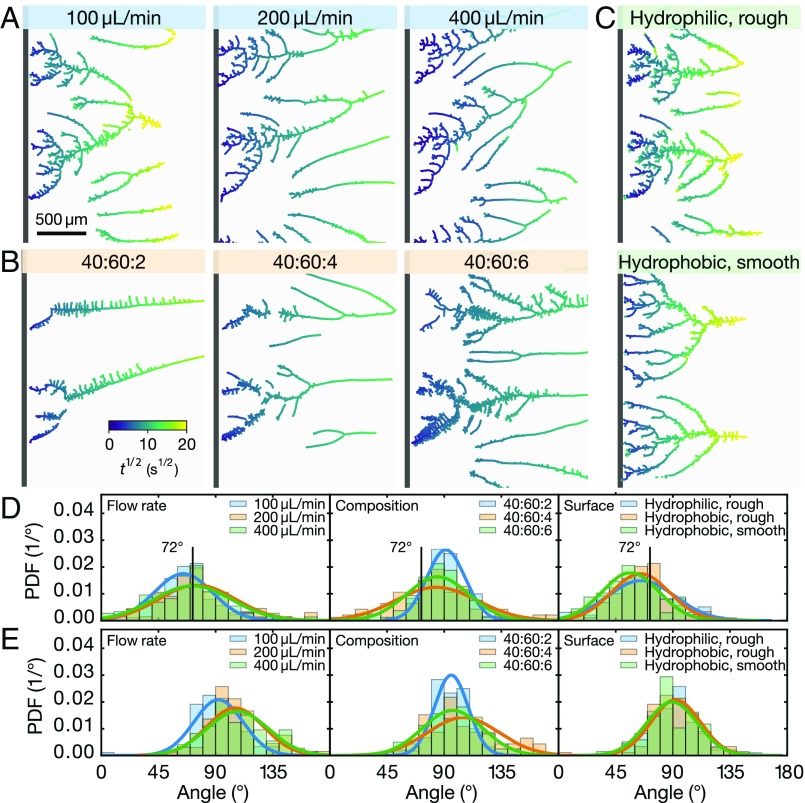Fig. 2.
Formation of nanodroplet branches up to 400 s after the start of branch growth. The color at any location indicates the time at which the branch reached a given location. (A–C) Optical images of the branches formed under eight different conditions. (A) The flow rate of water in the side channel was 100 L/min, 200 L/min, and 400 L/min. The composition of the Ouzo solution was the same for all three flow rates (water:ethanol:oil = 50:50:2). (B) The ratio of water, ethanol, and oil in the Ouzo solution was 40:60:2, 40:60:4, and 40:60:6 with a flow rate of water of 100 L/min. (C) The substrates were hydrophilic or hydrophobic, while the rim of the side channel was either rough or smooth. The flow rate of water was 100 L/min, and the composition in the Ouzo solution was 50:50:2. (D and E) Corresponding PDFs of the angles between two merged branches (D) over their full range and (E) from the segments near the merging point. The hydrophobic and rough channel was used for all cases in A and B; 100 L/min in A is presented as “Hydrophobic, rough” in the plots.

